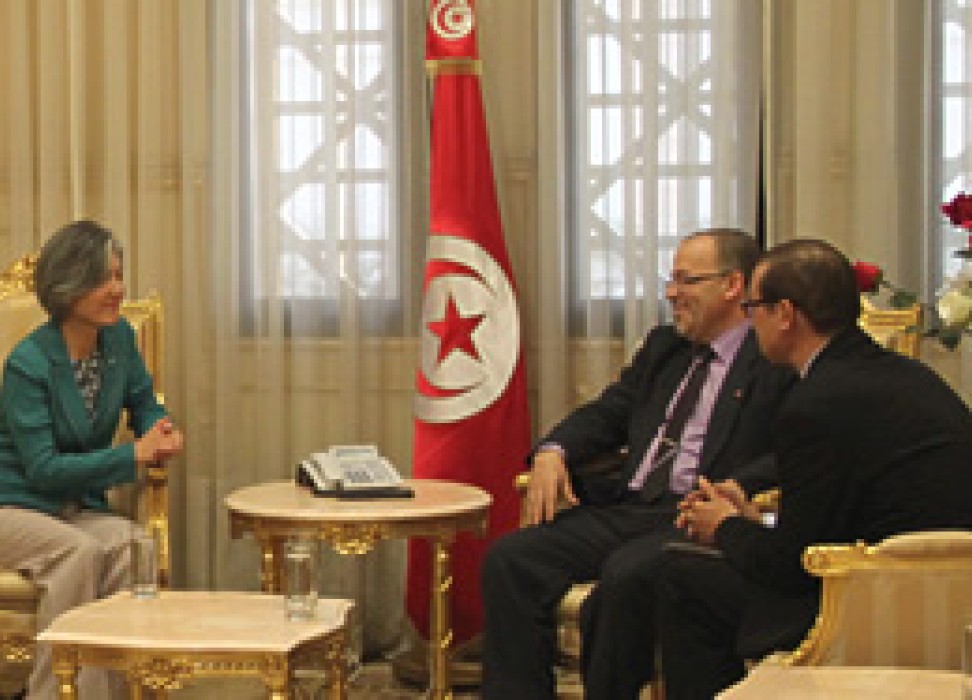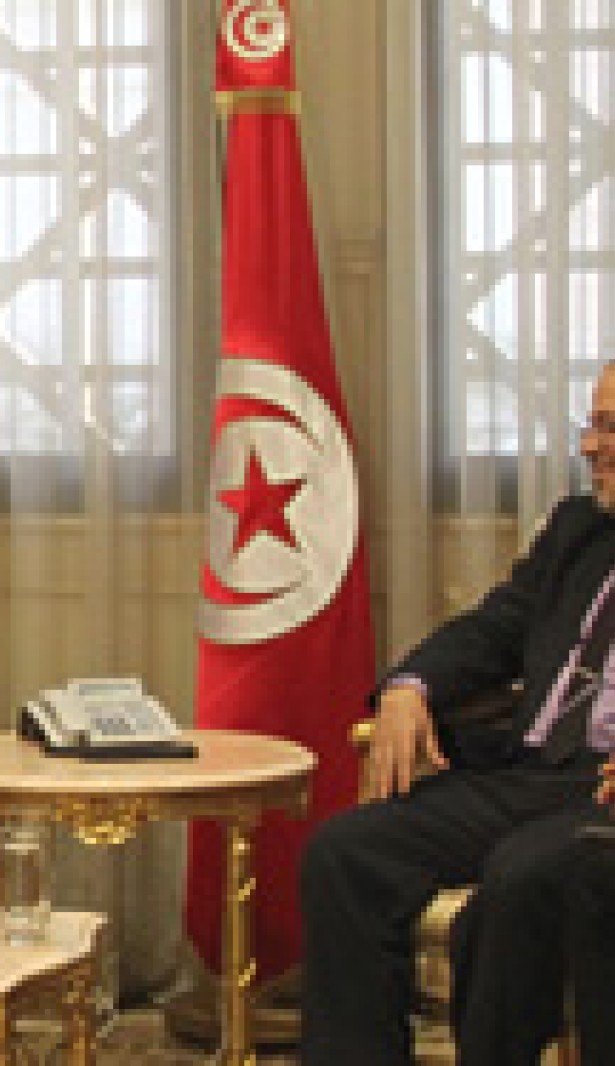Tunisia: after the Jasmine Revolution, treading the road to democracy
19 April 2012

In an address to the National Dialogue Conference on Transitional Justice in Tunis, Deputy High Commissioner for Human Rights, Kyung-wha Kang applauded the reforms already realized in Tunisia, especially in freedom of expression and association, the organization of successful national elections and progress towards drafting a new constitution.
The Conference marked the launch of Tunisia’s national dialogue, part of its ongoing drive to reach consensus on a transitional justice process.
Kang stressed the need for “utmost vigilance” in Tunisia for it to become a State which is fully accountable and based on the rule of law.
Referring to the key role a transitional justice process plays in the evolution from autocracy to democracy, Kang said: “The real break with the past and the solidity of the foundations of a new democracy also depend on light being shed on the human rights violations that occurred in the past.”
“Experience in other countries has shown that respect for the right to truth and accountability are essential to eradicate impunity and prevent further human rights violations,” she said.
The UN Human Rights Office (OHCHR) has the lead role in the development and implementation of transitional justice systems within the United Nations. Over the past decade OHCHR has supported national consultations and implementation of transitional justice programmes in more than 20 countries.
Very shortly after the downfall of the previous government, in January of 2011, OHCHR dispatched an assessment mission to Tunisia to draw up a plan to assist with efforts to build an open and democratic society. The Interim Government subsequently invited OHCHR to open a country office with a broad mandate of promoting and protecting human rights and which is now fully operational.
OHCHR’s work in Tunisia is focused in two areas it has identified as priorities: combating impunity and strengthening accountability, the rule of law, and democratic societies; and pursuing economic, social and cultural rights and overcoming inequality and poverty.
The office in Tunisia in cooperation with the UN Country team supports the authorities and civil society through technical cooperation, training and advocacy. For example, OHCHR is supporting efforts aimed at reforming the security and justice sectors.
During her visit, the Deputy High Commissioner met with several Tunisian Ministers including those responsible for the interior, justice, human rights and transitional justice, women affairs as well as with civil society groups and international non-governmental organizations.
In her discussions, Kang stressed, among others, the important role civil society must play through the reform and change process and emphasized in particular the role human rights defenders and women play “at the forefront in the struggle for democracy, too often at the price of hard suffering and loss.”
Kang reiterated the commitment of OHCHR to assist Tunisia at all levels as it addresses its past and seeks “deep and lasting change”.
19 April 2012

VIEW THIS PAGE IN:
